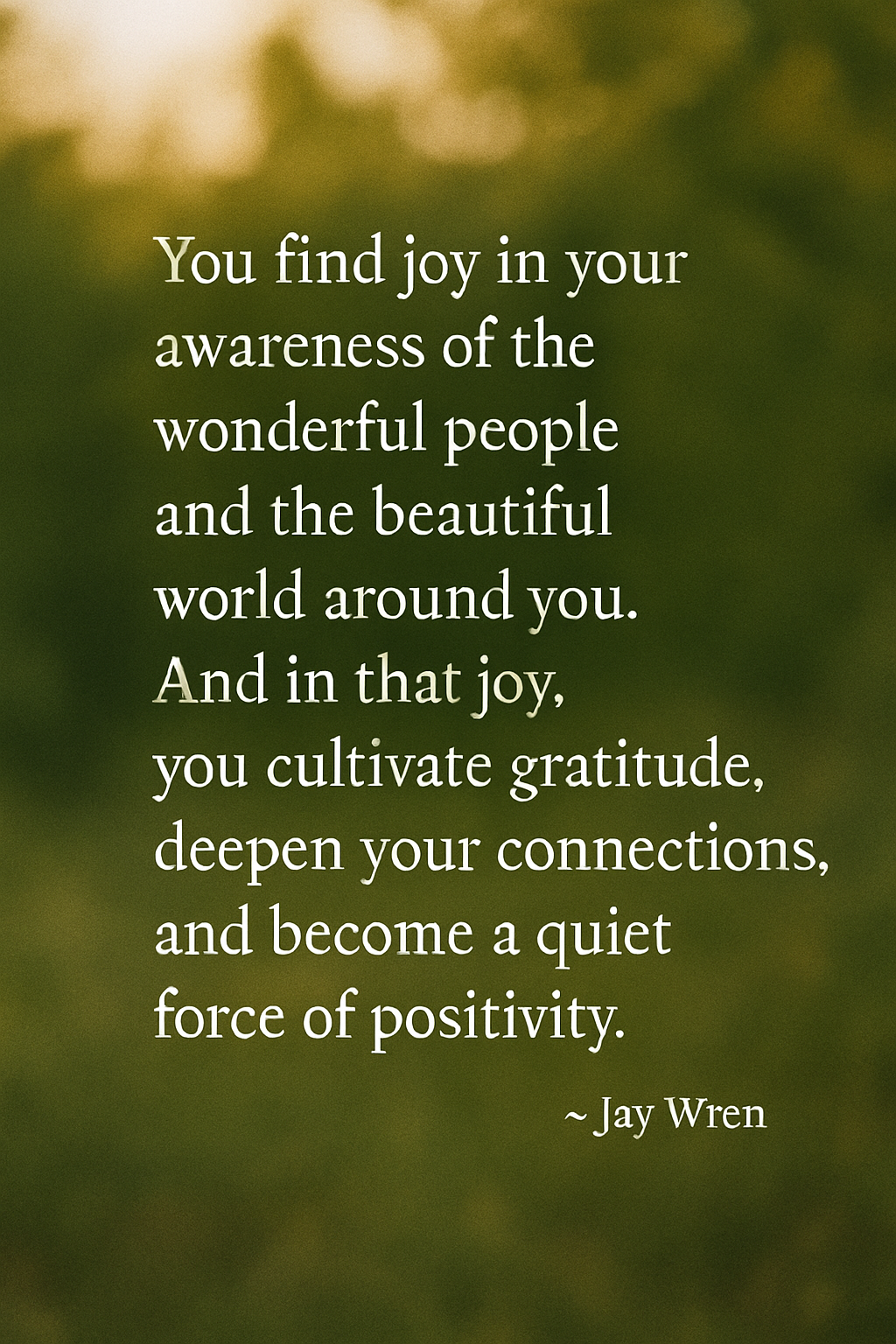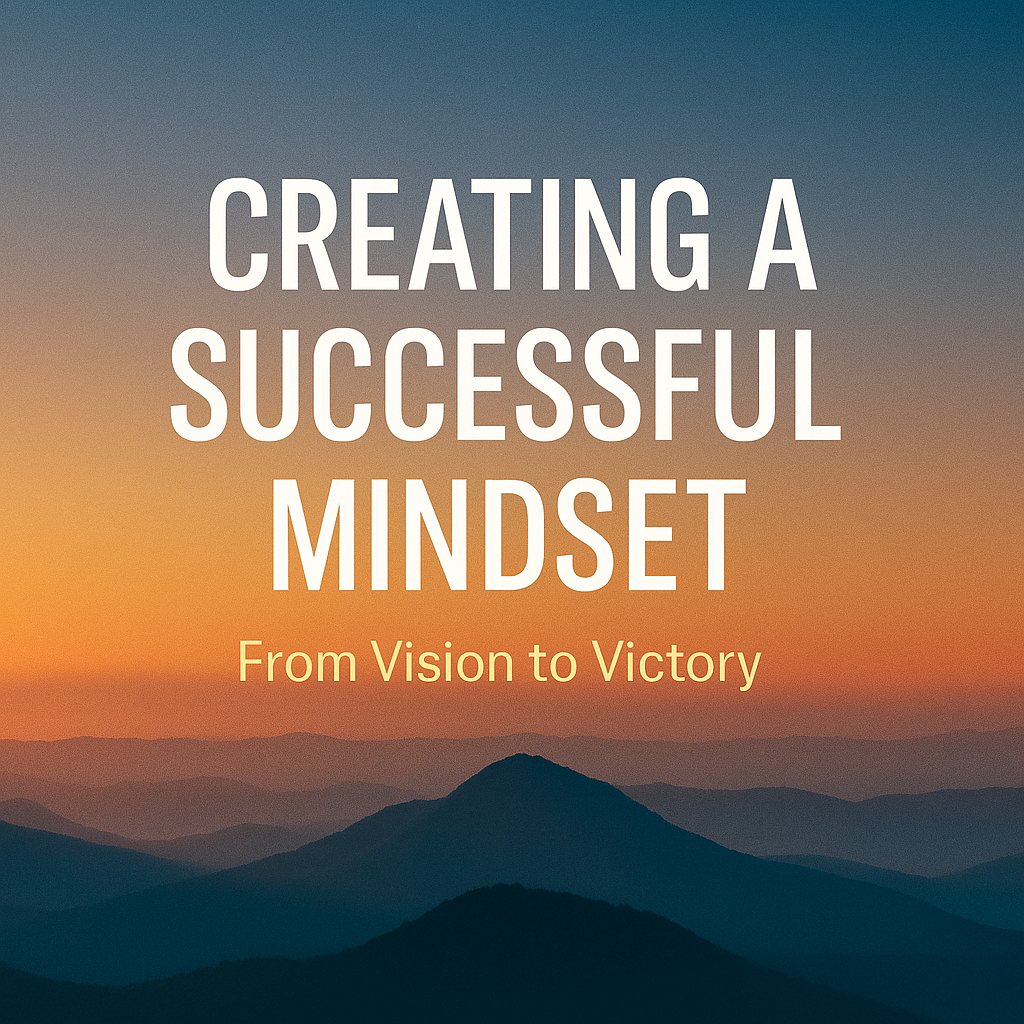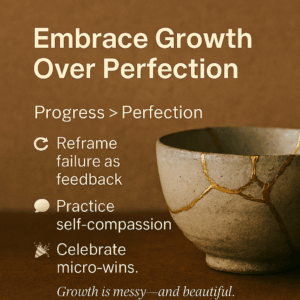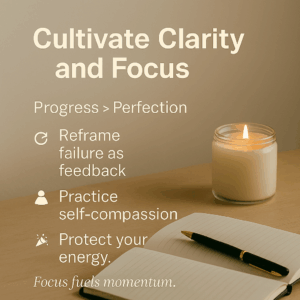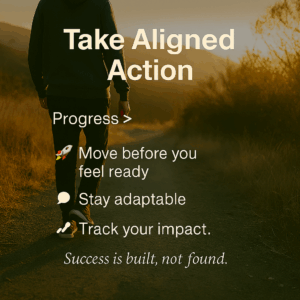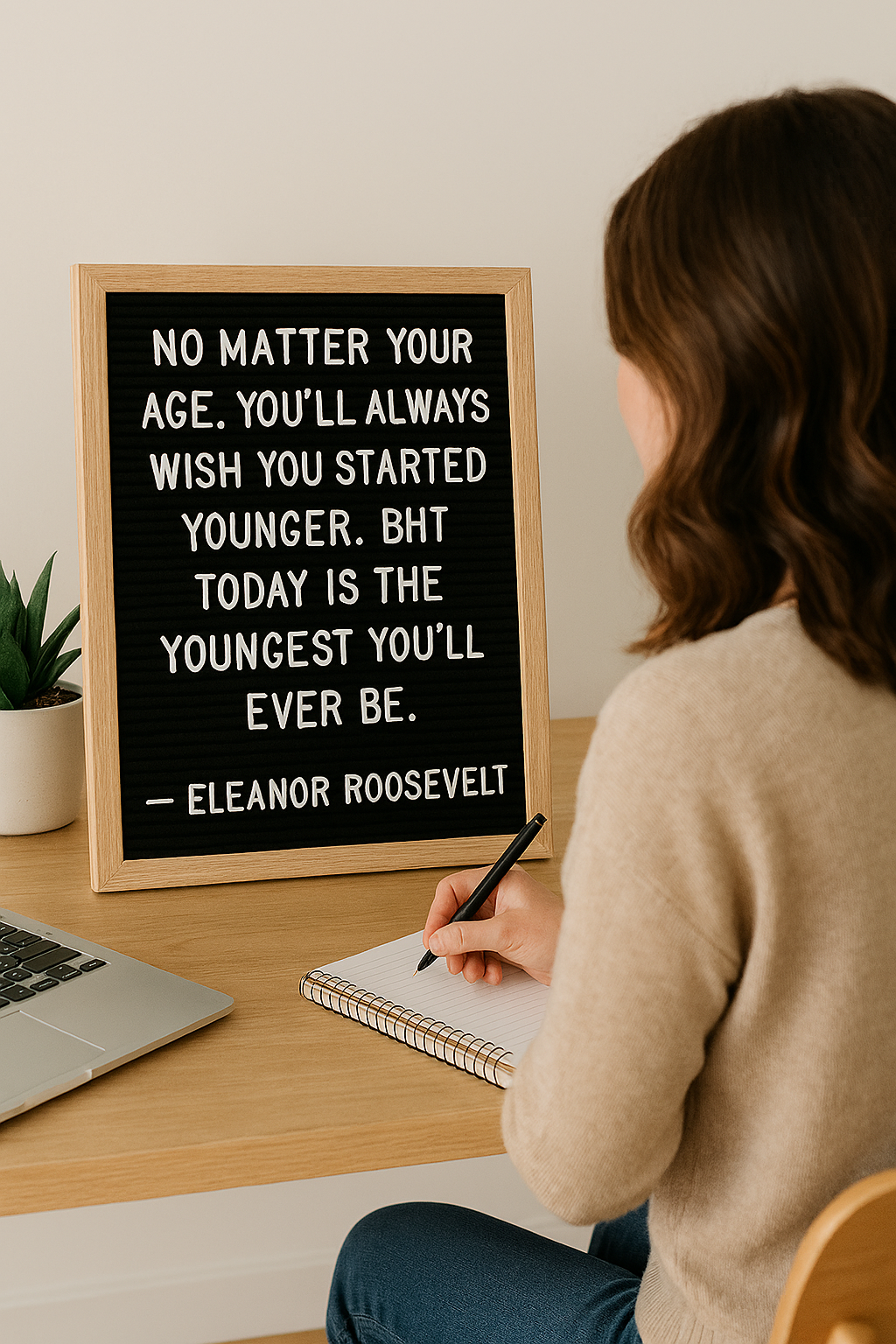You find joy in your awareness of the wonderful people and the beautiful world around you. And in that joy, you cultivate gratitude, deepen your connections, and become a quiet force of positivity — Jay Wren
We often chase big moments—the promotion, the prize, the perfect vacation. But what if true joy isn’t a destination, but a state of being? It’s easy to get caught up in the daily grind, to focus on what’s missing instead of what’s right in front of us. Yet, if we pause, we find joy not in grand achievements, but in the simple, profound awareness of the wonderful people and the beautiful world around you.
This awareness is a powerful practice. It’s noticing the kindness of a stranger, the laughter of a friend, or the way sunlight filters through the trees. It’s a conscious shift from a scarcity mindset to one of abundance. When we truly see and appreciate these things, something remarkable happens, we cultivate gratitude. Gratitude isn’t just saying “thank you”; it’s a deep appreciation that reshapes our perspective. It serves as a reminder that gifts, whether large or small, are all around us, and that we belong to something greater than just ourselves.
This practice also helps us deepen our connections. By being present with the people in our lives, we show them we value them. This isn’t just about surface-level interactions; it’s about seeing them—truly seeing them—and celebrating the unique qualities they bring into your world. This creates a stronger bond and a shared sense of appreciation.
Finally, in this cycle of awareness, joy, gratitude, and connection, you don’t need to shout to be heard. You become a quiet force of positiveness. You influence the world not through loud declarations, but through the calm, steady energy you emit. Your presence shines as a beacon for those around you, showing that beauty and kindness can still be discovered, even during tough times.
So, take a moment today to look around you. Find the joy. Cultivate gratitude. And in doing so, become that quiet, unwavering force of good the world needs.
